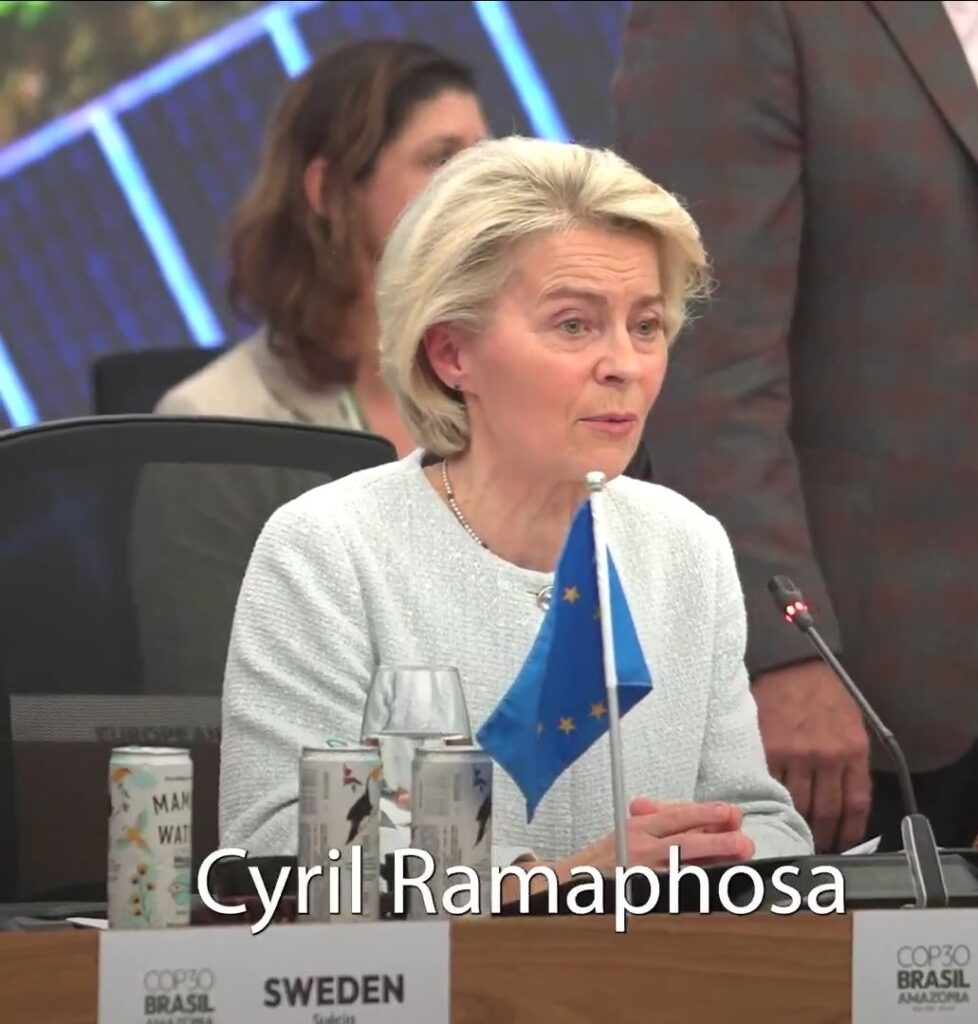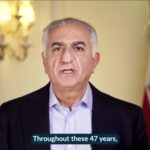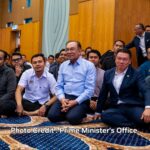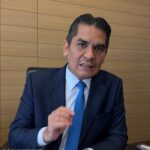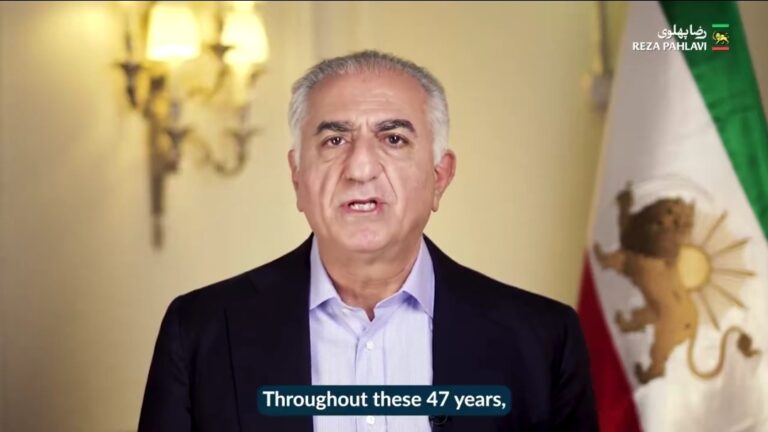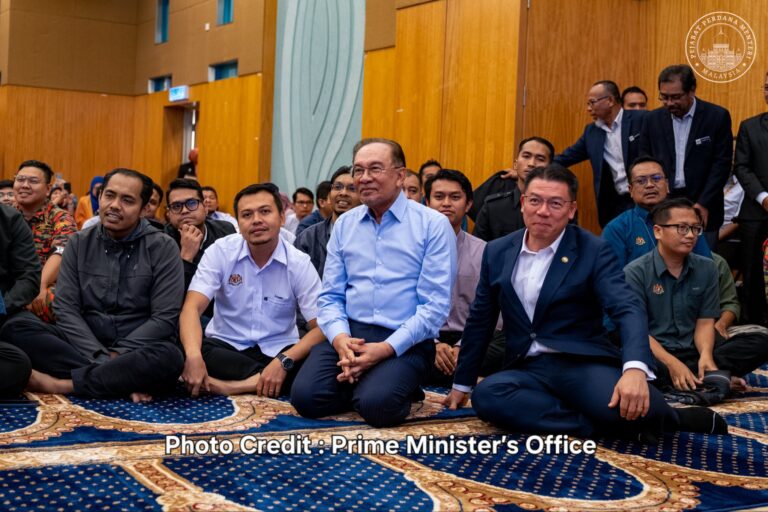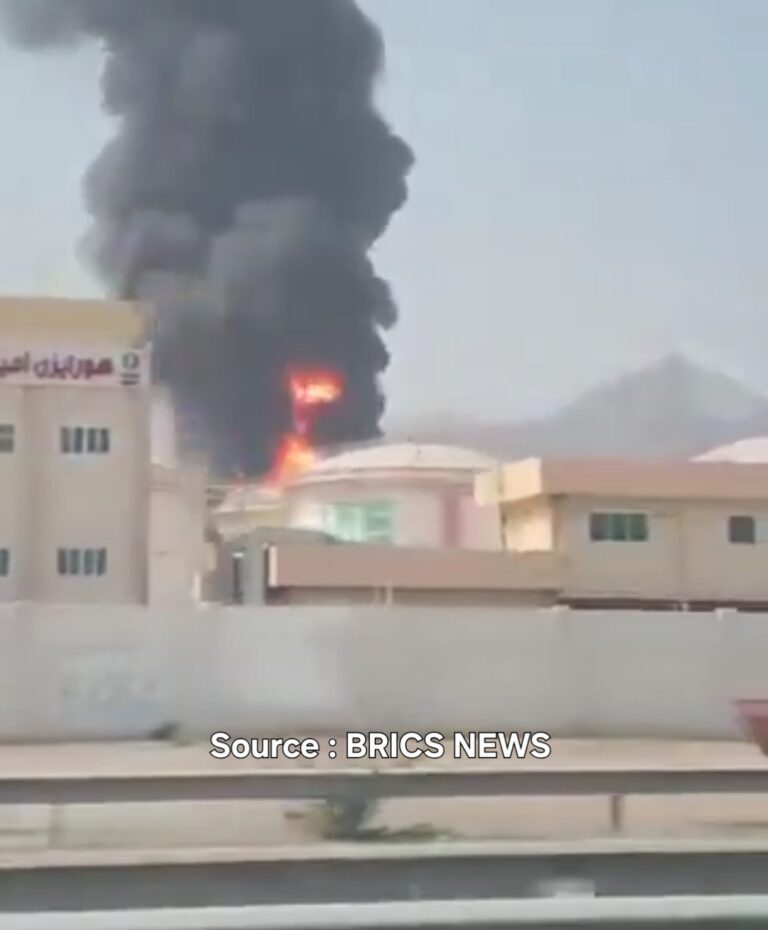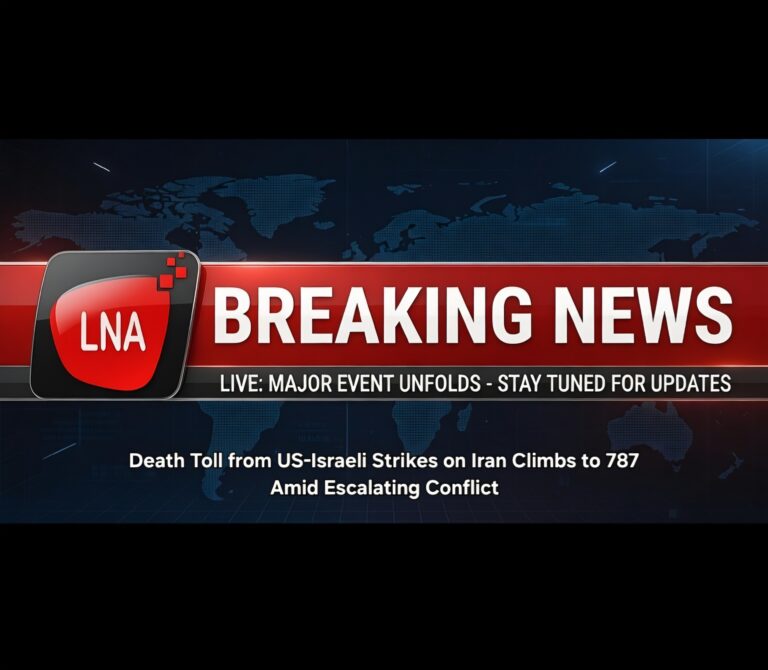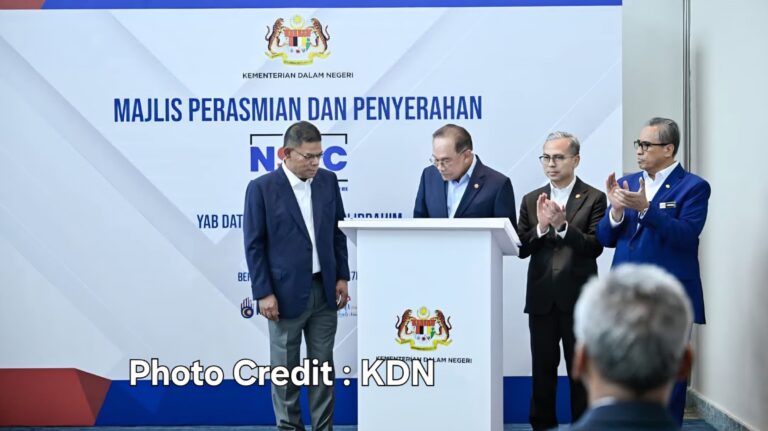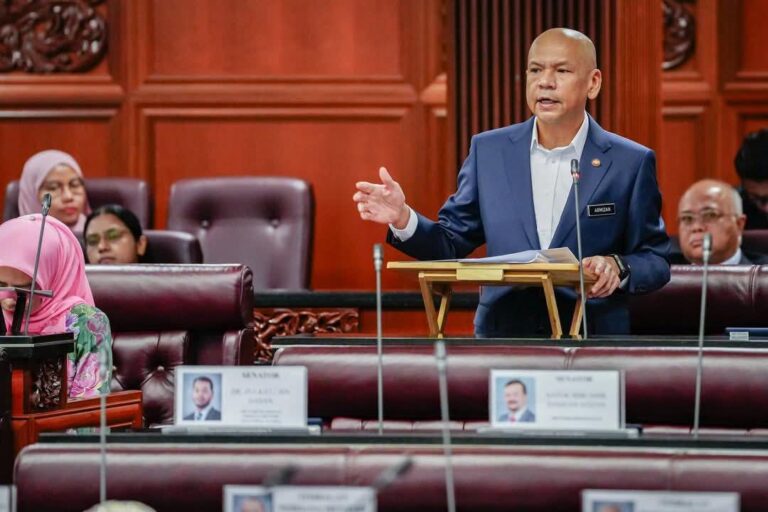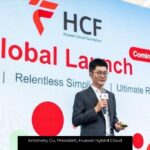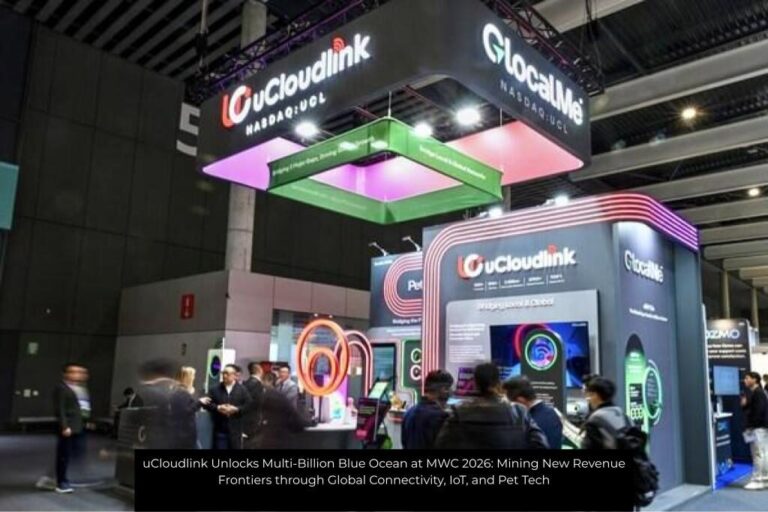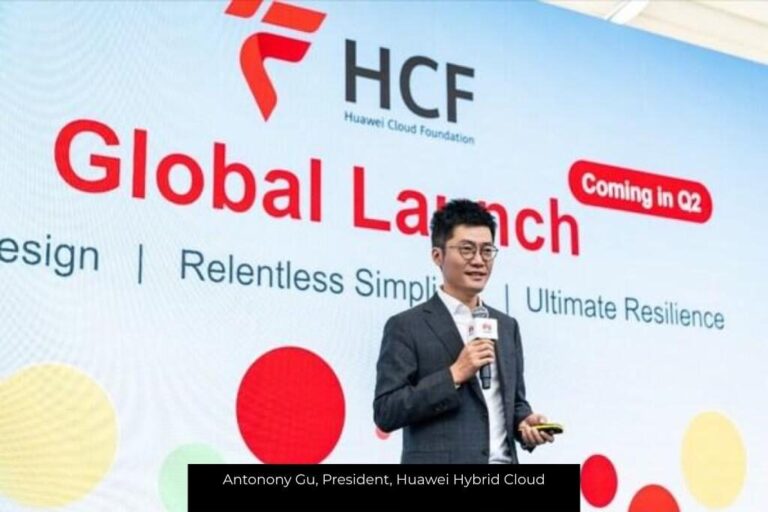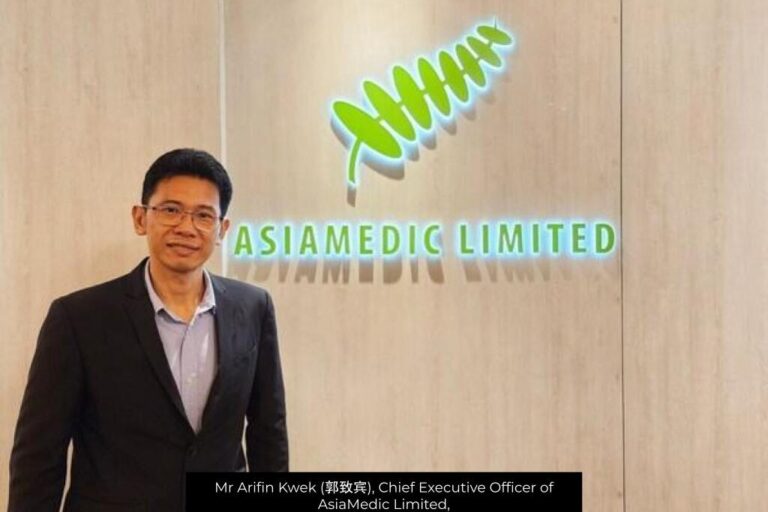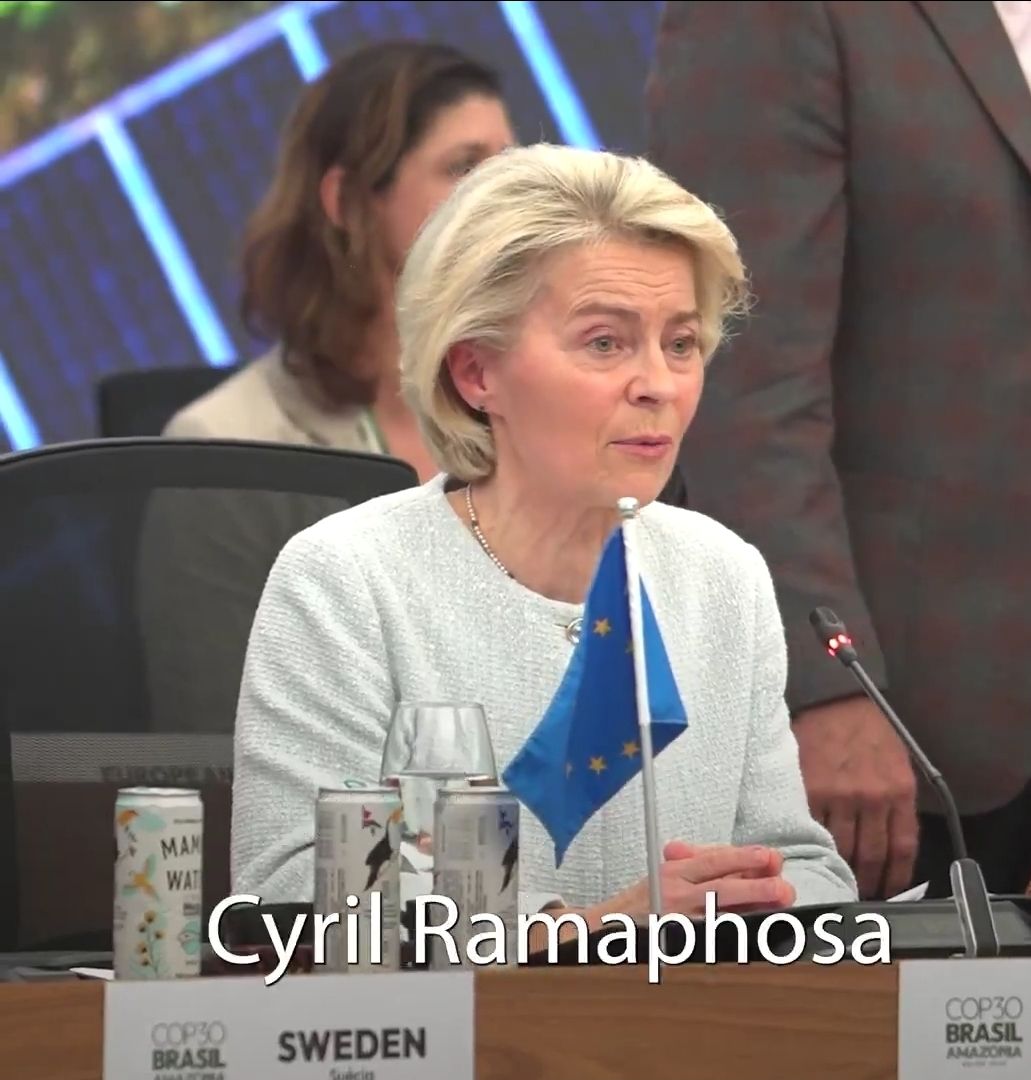
BRAZIL, Nov 7, 2025 – Amid the humid buzz of COP30 negotiations in the heart of the Amazon, European Commission President Ursula von der Leyen issued a stark call Friday for equitable access to the global clean energy boom, spotlighting Africa’s glaring underinvestment in renewables despite its vast solar potential. In a video clip shared on X from a high-level panel, von der Leyen declared it a “clean power revolution” and rallied support for the EU-backed “Scaling Up Renewables in Africa” campaign, teasing a major pledging summit in Johannesburg later this month.
The 49-second excerpt, filmed at the COP30 venue with Brazilian and Swedish flags flanking the EU banner, captures von der Leyen speaking in French to an audience of diplomats and activists. “We must ensure that the benefits of the transition are felt everywhere,” she begins, her voice steady over a backdrop of glowing solar panel graphics. She pivots to hard numbers: “Of the $2 trillion invested in clean energy in 2024, only 2% went to Africa—a continent that has 60% of the world’s best solar potential.” Gesturing emphatically, she adds, “So we have to change this mismatch,” crediting a collaborative push with South African President Cyril Ramaphosa and Global Citizen for launching the campaign to “accelerate renewables in Africa” and create jobs while advancing global climate targets.
Posted to her @vonderleyen account Thursday evening, the clip has drawn over 31,000 views and hundreds of engagements, blending COP30 urgency with a forward-looking pitch: “We’re two weeks away from our final pledging event in Johannesburg. Join us.” The summit, set for November 21 on the eve of the G20 meetings, forms the capstone of a year-long effort co-led by the European Commission, South Africa, and Global Citizen—with policy backing from the International Energy Agency—to mobilize public and private funds for Africa’s energy transition.
The campaign addresses a profound energy poverty crisis: Some 600 million Africans—over half the continent’s population—lack electricity access, despite untapped solar, wind, and geothermal riches that could power not just local grids but global supply chains. It aligns with the World Bank and African Development Bank’s “Mission 300” to connect 300 million people to reliable power by 2030, emphasizing renewables to curb emissions and foster economic growth. Von der Leyen’s push builds on earlier announcements, including a €618 million “Team Europe” package unveiled at the Global Gateway Forum in October, targeting hydropower, solar, and grid upgrades in nations like Kenya (€55 million), Uganda (€60 million), the Democratic Republic of Congo (€90 million), Mauritania (€125 million), and Nigeria (€20 million), among others including Zambia, Tanzania, Togo, Cabo Verde, and South Africa itself. An additional €545 million in projects was pledged in September at the Global Citizen Festival in New York, part of a series of events from Sevilla to Rio de Janeiro.
At COP30, where Brazil’s President Lula da Silva has framed the talks around “responsibility, not blame,” von der Leyen’s message resonates with broader pleas for climate finance reform. Developing nations, including African Union representatives, have demanded trillions in adaptation funding, arguing that wealthy polluters like the EU must bridge the gap left by faltering U.S. commitments under the incoming Trump administration. “Africa holds immense potential for renewable energy and the world is watching,” von der Leyen echoed in a related post earlier this week, tying the initiative to EU goals for energy security and net-zero by 2050.
Support has poured in from climate advocates and partners. Global Citizen CEO Hugh Evans urged action via the app, framing Johannesburg as a “catalytic moment” for commitments. The EU’s International Partnerships directorate hailed the investments as transformative for “clean, reliable energy,” while activists like Claire Kraatz praised the renewables surge for bolstering “energy independence.”
South African officials, including Ramaphosa, have welcomed the €12 billion in broader Global Gateway ties, positioning the nation as a “clean energy leader.”
Yet the post has ignited backlash from EU critics, who decry it as virtue-signaling amid domestic woes like soaring energy bills and industrial flight to China. “When will you resign? You are destroying Europe’s economy,” fumed @melan38686, echoing complaints that the bloc’s green push—while opening two coal plants weekly in rivals like China—hands competitive edges abroad. @BillyRickiBob highlighted Beijing’s industrial boom, quipping, “China opens two new coal plants every week!” Others, like @andyp1599, alleged resource grabs: “Look out Africa, the EU is coming after your mineral wealth.” @AllanFeldt_ questioned taxpayer funds for “a corrupt African state” while Europeans grapple with “skyrocketing” prices. Even @shiroihana80218 pivoted to demographics, decrying infant mortality rates over foreign aid.
Von der Leyen, undeterred, has framed the effort as mutual gain: African renewables could export green hydrogen to Europe, easing reliance on Russian gas post-Ukraine war. As COP30 delegates haggle over loss-and-damage funds—projected to need $400 billion annually—the Johannesburg pledges could test her vision, potentially unlocking billions more in private capital. With the summit’s guest list including Ramaphosa and Global Citizen stars, all eyes turn south: Will the revolution electrify the continent, or fizzle under fiscal scrutiny back home?
